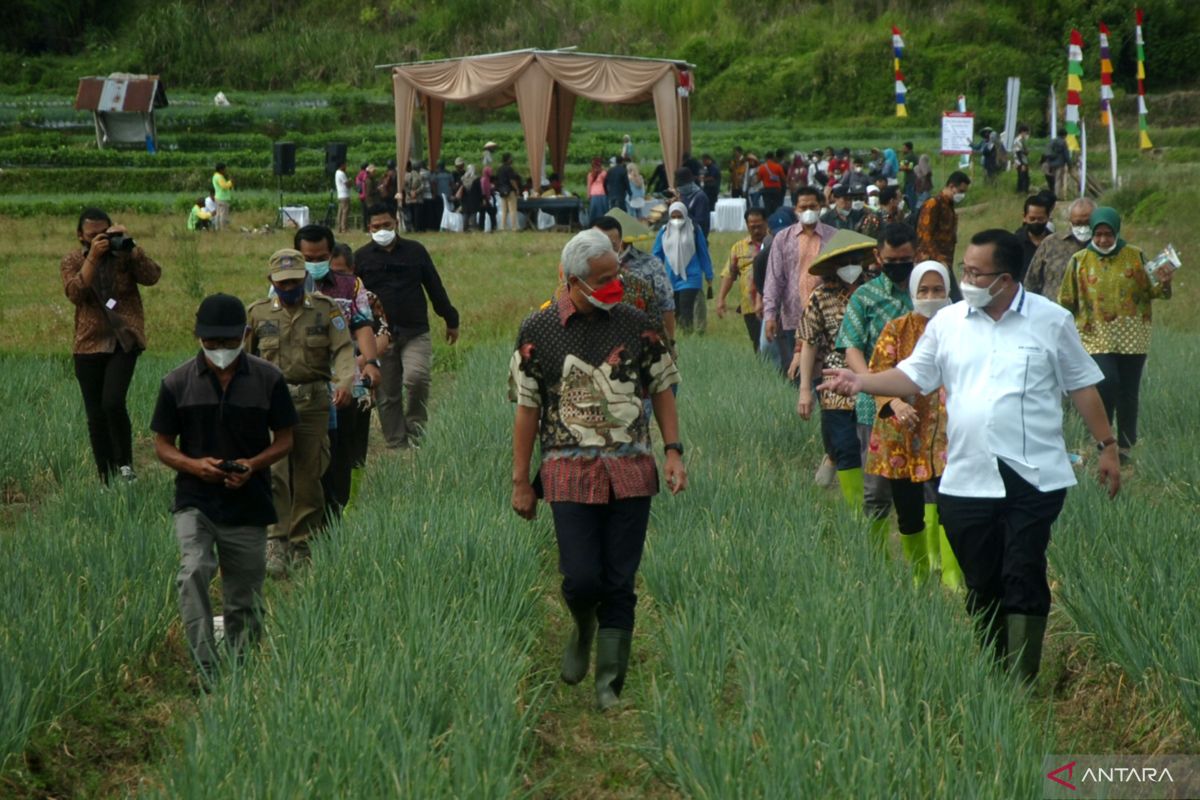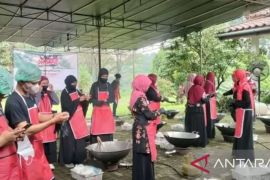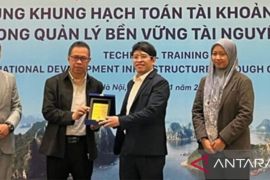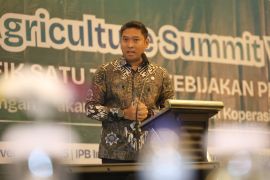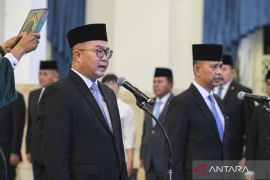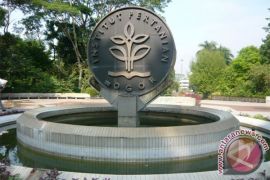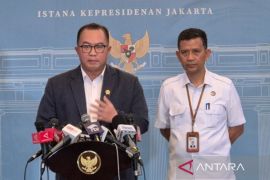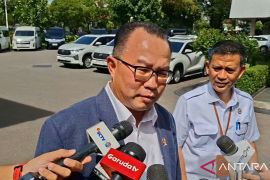"I express my highest congratulations and appreciation for Indonesia's achievement on being able to meet the demand for rice during the COVID-19 pandemic without imports. Indonesia is seen as a country that is able to be self-sufficient and has resilience to face COVID-19. This award is a gift for Indonesia’s Independence Day," Satria noted in a statement here, Monday.
Satria said that this achievement was the result of hard work of all parties, including the efforts of the Ministry of Agriculture (Kementan), in implementing all directives of President Joko Widodo (Jokowi) to boost production during the pandemic.
"These include the development of superior varieties, intensification and extensification, better and wiser fertilization, building dams, repairing irrigation canals, utilizing the mechanization system, providing credit for people's businesses, and assisting farmers in strengthening humidity," he remarked.
Related news: Sugarcane land expansion to attain self-sufficiency in sugar
According to Satria, these programs have boosted national rice productivity, thereby resulting in Indonesia ranking second-highest in Southeast Asia in terms of productivity and has resulted in relatively safe and sufficient stocks of Indonesian rice.
"Even the rice stock survey data conducted by Statistics Indonesia (BPS) is in the range of 9.7 million tons to 10.2 million tons during the period from April to June 2022. We thank the farmers, who have worked hard to achieve this self-sufficiency," he affirmed.
However, Satria said, Indonesia's large population and high consumption of rice per capita over the last five years still posed a challenge. He emphasized that Indonesia needed to work harder to optimize all land intensification, extensification, and food diversification programs based on local food ingredients.
Related news: High level of rice stock proves RI's food system resilience: Jokowi
"We have to again boost agricultural productivity on marginal lands, such as swamp land, ex-mining land, tidal land, and land with high salinity. There should be technological breakthroughs that are more feasible," he affirmed.
It is necessary to reduce the rate of conversion of productive paddy fields as part of the efforts to increase national food availability. Moreover, he emphasized the need to reduce food loss and food wastage to achieve precision agriculture.
"We need to suppress food loss, which currently reaches around nine to 11 percent. We must also be able to change consumer behavior to be able to suppress food waste, which currently contributes up to nine percent," Satria affirmed.
Related news: Ministry urges food cooperatives to adapt to digital transformation
Related news: Indonesian govt encourages development of food cooperatives
Translator: Aditya R, Azis Kurmala
Editor: Fardah Assegaf
Copyright © ANTARA 2022
